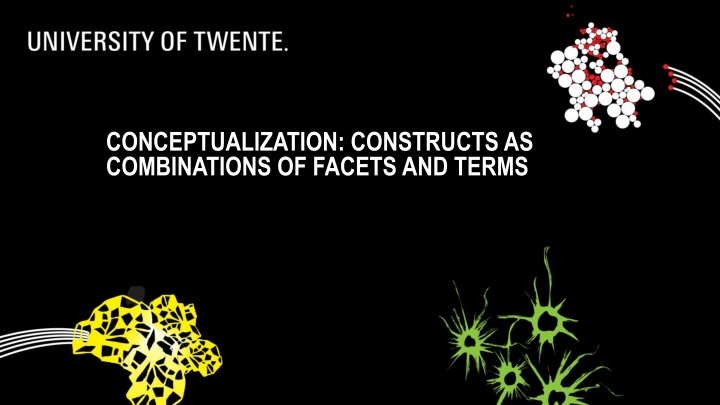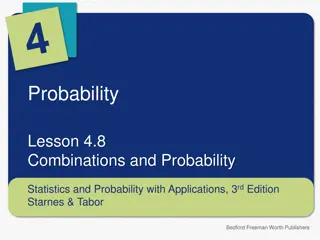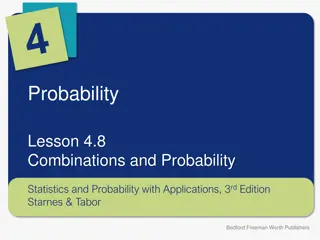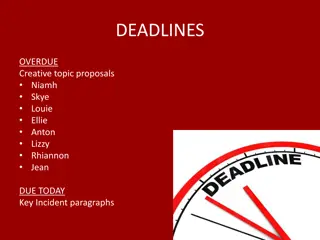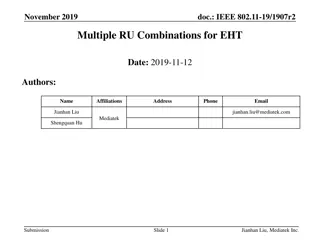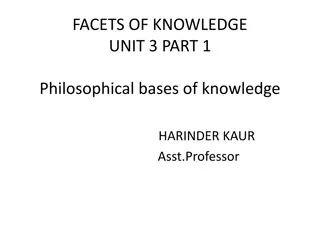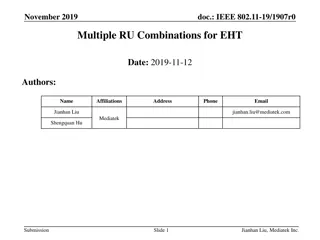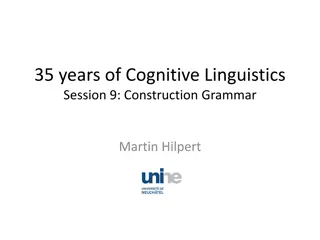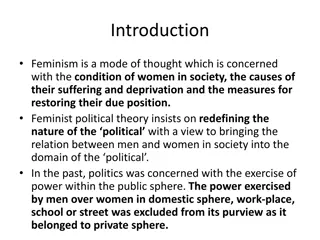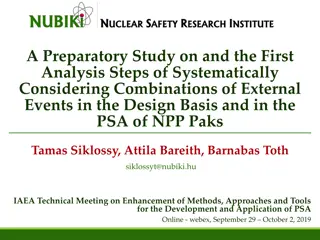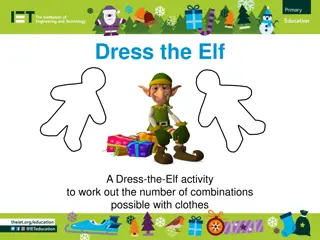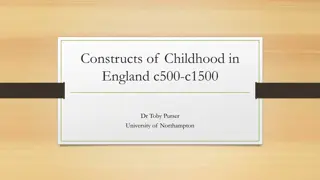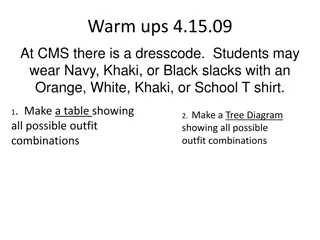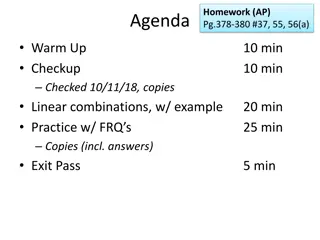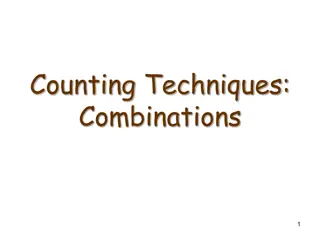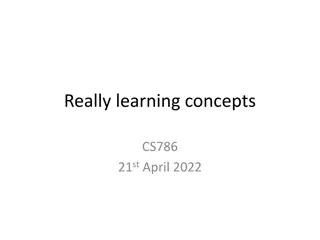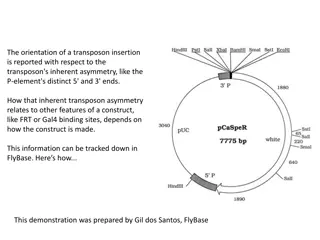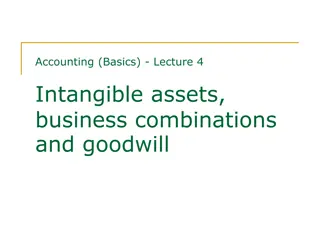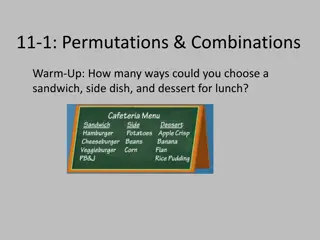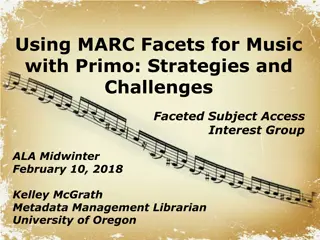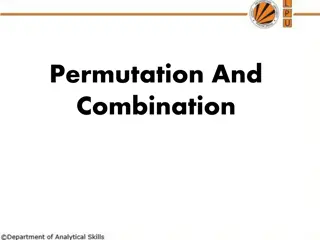Conceptualization and Constructs as Combinations of Facets
Delve into the intricate relationships between concepts, terms, and their facets in the realm of conceptualization and constructs. Explore examples like democracy and theoretical variables, understanding how concepts are linked to observations and operationalization.
Download Presentation

Please find below an Image/Link to download the presentation.
The content on the website is provided AS IS for your information and personal use only. It may not be sold, licensed, or shared on other websites without obtaining consent from the author.If you encounter any issues during the download, it is possible that the publisher has removed the file from their server.
You are allowed to download the files provided on this website for personal or commercial use, subject to the condition that they are used lawfully. All files are the property of their respective owners.
The content on the website is provided AS IS for your information and personal use only. It may not be sold, licensed, or shared on other websites without obtaining consent from the author.
E N D
Presentation Transcript
CONCEPTUALIZATION: CONSTRUCTS AS COMBINATIONS OF FACETS AND TERMS
AIM Conceptualization Concept (a.k.a. term ) and its facets Four types of relationships between terms & facets: And: Necessary & Sufficient conditions ( (not) being a bachelor ) Not: Typologies ( type of welfare state ) Or: Family resemblance ( being sick ) Missing: A set of similar variables ( personality )
EVERYONE USES CONCEPTS In the 21st century, most states are democratic Setting (temporal) Units Variable Concepts like 21st century / states / democratic are social constructions
EXAMPLES OF CONCEPTS Violence Ethnocentrism Intelligence Bachelor Democracy Here, we focus on concepts that are theoretical variables
RELATING CONCEPTS TO OBSERVATIONS Concept/term Conceptualization Facets Operationalization Indicators Measurement Observations deductive inductive
CONCEPTS Many theoretical variables seem to be simple: Gender The amount of money on a bank account The amount of energy produced by a windmill These are concepts , but seldom called constructs
EXAMPLE OF A CONSTRUCT Bachelor (as in bachelor party ) Bachelor is a variable characterizing people: people are or are not bachelors.
EXAMPLE 1: BEING A BACHELOR Facets Married or not Construct/Concept/Term Being a bachelor or not Over 18 or not Male or not
CONSTRUCTS CONSIST OF FACETS Facets Variable Variable Construct/Concept/Term Variable Variable Variable Variable Variable
RELATIONSHIPS BETWEEN FACETS AND TERMS How are facets related to terms ?
EXAMPLE: BEING A BACHELOR Married or not and Being a bachelor or not and Over 18 or not and Male or not
RELATIONSHIPS BETWEEN FACETS AND TERMS And: necessary and sufficient conditions
NECESSARY AND SUFFICIENT CONDITIONS If we miss information about one of the facets, we cannot tell (all facets are necessary) If we have information about the three facets, we can tell (the set of facets is sufficient)
EXAMPLE 2: GENDER AS DICHOTOMY and has male or female biological characteristics Gender Biologically man Biologically woman Socially woman Woman Socially man Man Is male or female? and presents socially as male or female?
EXAMPLE 2: GENDER AS NORMAL VARIABLE TYPOLOGY Biologically man not presents socially as male or female? Man Transgender Socially man Socially woman not Woman Transgender has male or female biological characteristics Biologically woman
RELATIONSHIPS BETWEEN FACETS AND TERMS And: necessary and sufficient conditions Not: creating (matrix) typologies
EXAMPLE 3: DEMOCRACY What may be the underlying facets of democracy? Rule of law Popular elections
CONSTRUCTS CONSIST OF FACETS Dimensions/facets rule of law Construct/Concept/term democracy popular elections
TWO DIMENSIONS DEFINING DEMOCRACY USING AND Right to participate (political freedom) No democracy Democracy No liberties (no rule of law) Liberties (rule of law) No democracy No democracy No right to participate (no political freedom)
TWO DIMENSIONS DEFINING REGIME TYPES USING NOT Right to participate (political freedom) Electoral dictatorships Democracy No liberties (no rule of law) Liberties (rule of law) Autocracy Liberal autocracies No right to participate (no political freedom)
RELATIONSHIPS BETWEEN FACETS AND TERMS And: Not: Or: necessary and sufficient conditions creating (matrix) typologies family resemblance (sufficient conditions)
TWO DIMENSIONS DEFINING DEMOCRACY USING OR Right to participate (political freedom) Democracy Democracy No liberties (no rule of law) Liberties (rule of law) Democracy No democracy No right to participate (no political freedom)
RELATIONSHIPS BETWEEN FACETS AND TERMS And: Not: Or: necessary and sufficient conditions creating (matrix) typologies family resemblance (sufficient conditions) Missing: just a set of somehow related variables
THIS MICROLECTURE Conceptualization Concept (a.k.a. term ) and its facets Four different ways of relating facets and terms Not: Creating typologies And: Necessary and Sufficient conditions Or: Family resemblance relationships Missing: Just a set of somehow related variables
